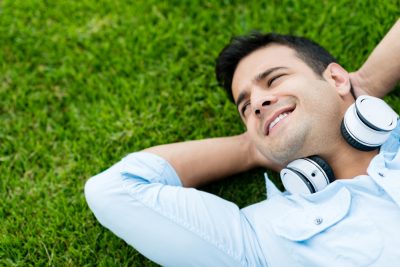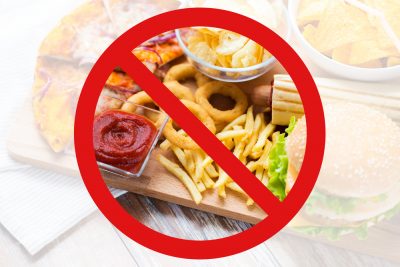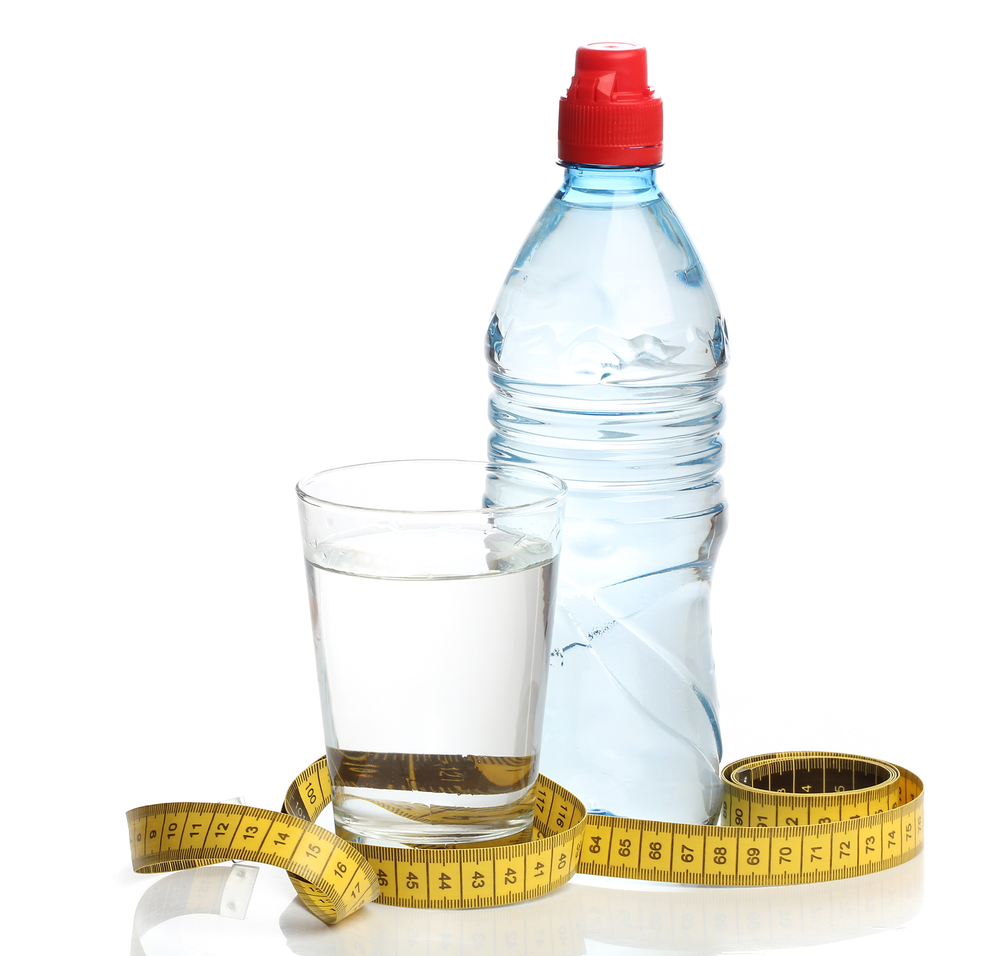It’s a very typical scenario when you are trying to keep your weight in check, and you step on the scale.
Surprisingly, your weight is higher than it previously was, not by a ton, but at least a few extra pounds than the last two days or three. You have been keeping to your exercise routines and eating fewer calories, so what could be up?
Simple, “water weight.” When you add a pound in a few days, the most likely culprit is water. Fat takes a long time to build up in your body, so it’s unlikely that you add weight from fat in a day.
In addition to that, the glycogen that is the accumulated form of glucose which our bodies turn into energy retains more water than fat would, due to its biochemical composition.
Because it is accumulated in the liver and muscle cells, glucose is fully hydrated with three to four parts of water, so in a case when you lose water rapidly, the glycogen stores become diminished. And this sends a signal to the muscles and liver to save up any bit of glucose and water that you take in. At this point, if you step on the scale, you are more likely to weigh more.
The human body is made up of about 60% of water, so it’s not hard to see why it plays a significant role in our lives.
So many people tend to worry about water weight, including bodybuilders and athletes who have a weight category to maintain.
Medically, excess water retention can be referred to as edema, although this is a different issue, it is still considered harmless. Edema may also be a sign of health conditions like liver or kidney disease, and if you are experiencing this, then you should consult your doctor immediately.
This article is for athletes and those who want to get rid of water weight in a fast and easy way. So, if you are looking to hop out on the water weight, there are a few techniques you can try.
- Plan out a Workout Schedule
Involving yourself in intense workouts, like HIIT programs can result in water retention because of the swelling that occurs in the muscle repair process. However, it is known that exercises help to trigger blood flow and get rid of lymphatic fluid buildup in the extremities. So, it’s expected to notice a bit of bloating during the day after a rigorous HIIT workout, but it should go down after. Or, if you decide it’s too much stress, you can opt for yoga, as it is a more therapeutic routine.
You should know that exercise is one of the safest and fastest ways to reduce water weight, and any exercise that would stimulate sweat would do the trick. The average water lost during an hour of exercise is between 20-65 ounces per hour, depending on the atmosphere and clothing.
When exercising, your body transports a lot of water to the muscles, and this can aid in reducing water located outside of the cell, and also prevent the “soft” look, people complain about, that happens as a result of water retention.
But, you would also need to increase your water intake when training. As an alternative or extra measure, you can boost your sweat and water loss in the sauna, and this can be implemented after your gym session.
Regular workouts would help your body have a healthy balance of body fluids and sweat out extra accumulated water.
- Drink More Water
We mentioned this earlier, and although it sounds counterintuitive, it’s absolutely a known trick for reducing water retention. You should increase your daily intake of water if you want to get rid of water weight. And this is especially excellent is you are replacing sugary sodas and juices with water because none of these can help you lose weight. Research has proved that taking two liters of water can affect your approximated energy expenditure by 95 calories every day. And this means that your metabolism rate would be higher and you would lose more weight.
- Reduce
 your Stress Level
your Stress Level
When you subject your body to daily stress, it can lead to an increase in the production of a hormone known as cortisol, which has a direct impact on water weight and fluid retention. This happens because stress and cortisol increase a hormone that influences water balance in the body; the hormone is known as ADH – Antidiabetic Hormone.
ADH operates by signaling your kidney on the amount of water that should be pumped back into the body. And when your stress level is normal, you will have a balanced level of cortisol and ADH, which would aid in fluid balance and even improve your overall health and reduce the risk of developing health conditions.
Stress raises the level of cortisol and ADH in your body, which directly impacts the water balance in your body.
- Reduce your Salt Intake
Sodium can be gotten from your daily consumption of salt, and it is the most common electrolyte in the human body. For this reason, it plays an essential role in hydration levels.
When your sodium level becomes too high or low, it causes an imbalance in the body which can lead to fluid retention.
Sodium causes the body to retain water, so this is a no-no when you want to lose water weight. But don’t dwell on the obvious, which is, sodium lurking in your best meals, including cereals and bottled salad dressings.
High salt intake, particularly with processed food, may aid in water retention, and this is especially true if there is a low intake of water and zero exercises.
But, this is dependent on the quantity of sodium intake and blood levels. Studies have concluded that your body stores excess water if you radically adjust your habitual daily intake. Sodium or salt is a critical factor in weight retention, so try to avoid drastic changes such as extreme elimination of salts from your diet or excessive salt intake.
- Take Electrolytes
Electrolytes such as potassium and magnesium that have an electric charge play important roles in the body, regulating water levels inclusive. When the electrolyte level in the body becomes too low or too high, it can alter the fluid balance in the body, and this can lead to increased water weight. You should measure your water intake to your electrolyte intake. So, the more water you drink, the more electrolytes you would need.
Also, if you workout regularly, or you stay in a hot environment, you may need extra electrolytes to replace the ones already lost when you sweat.
In contrast, a large quantity of electrolytes in salty foods, combined with low water intake and no exercise, can have the opposite effect and increase your water weight.
Electrolytes control cell hydration, so electrolyte supplements can be helpful if you drink a lot of water and exercise regularly.
- Take Supplements Containing Magnesium
Magnesium is a crucial mineral and vital electrolyte. Recently, it has become an increasingly common supplement for health and sports performance, and research has shown that magnesium plays over 600 roles in the body. These same studies have shown that it can reduce water weight.
This happens because magnesium works together with other electrolytes like sodium and potassium, and they all combine to regulate your body’s water level.
Magnesium also has several other health benefits for those who lack it in their diets. Therefore, magnesium intake should be encouraged as it plays a crucial role in hydration and body water levels.
- Prioritize on Specific Health Foods
There are certain foods that when added to your diets, can help to reduce water retention. Foods that are rich in potassium are recommended, as it can help balance sodium levels, and also increase urine production, which would help reduce excess water.
Bananas, beans, tomatoes, yogurts, and other dairy products are all rich in potassium. Magnesium supplements and foods are also recommended; foods like dark chocolates and dark leafy vegetables can be taken to reduce water retention.
The following foods are sometimes recommended by dieticians to reduce water weight:
- Garlic
- Nettle
- Cornsilk
- Parsley
- Hibiscus
Although having a bloated stomach is not a sign of water retention, it would help if you could limit the intake of foods that can result in bloating. This includes highly processed foods, and foods rich in fiber. Alternatively, you could also try out low FODMAP foods to see if it can help.
Specific foods and herbs can serve as diuretic and aid in water retention, and combining them with food that doesn’t cause bloating would be preferable.
- Say “No” to Carbs

Eliminating carbs from your diet should be among the first steps to losing water weight. Although carbs are accumulated and stored in the muscles and liver as glycogen, glycogen also stores water inside it.
For every one gram of glycogen, you store in your body, 4 grams of water may be accumulated with it. This explains why people immediately lose weight when they switch to a low-carb diet, as it lowers glycogen stores.’
Excess intake of carbs would lead to an increase in insulin, and this can raise sodium retention and increase the reabsorption of water in the kidney.



